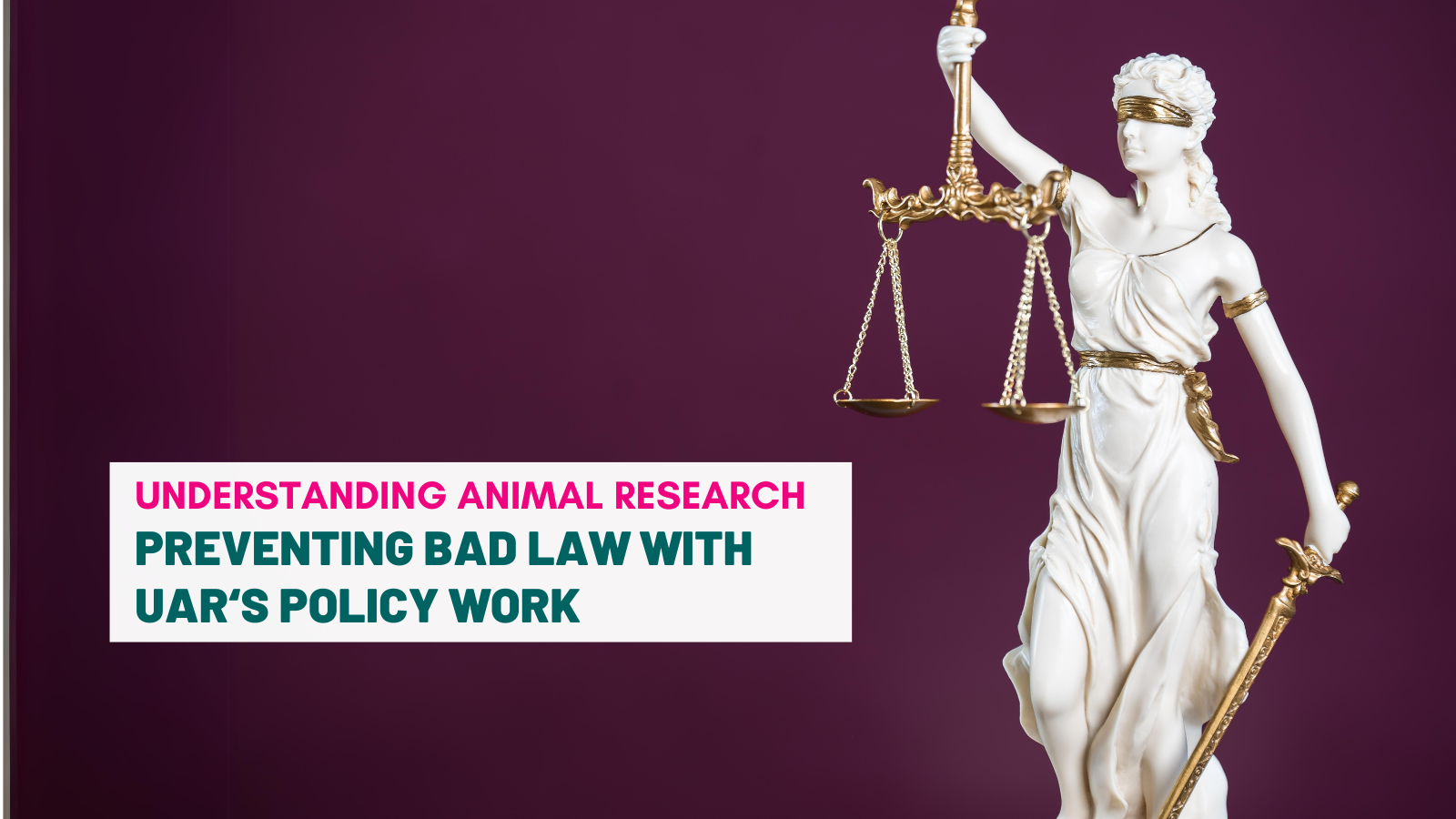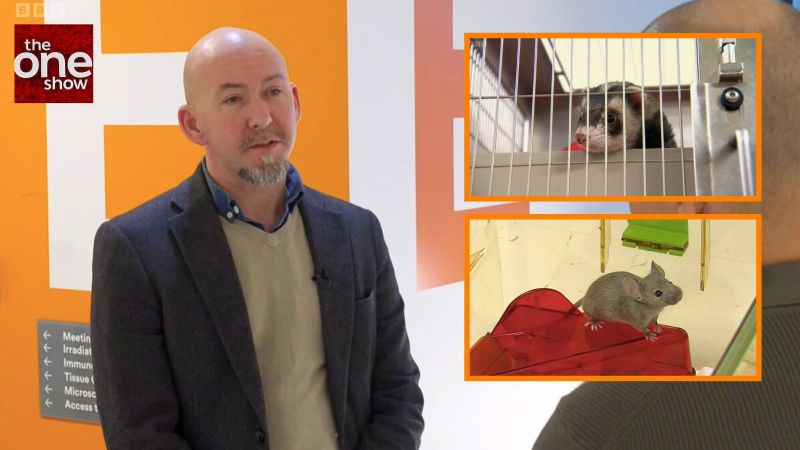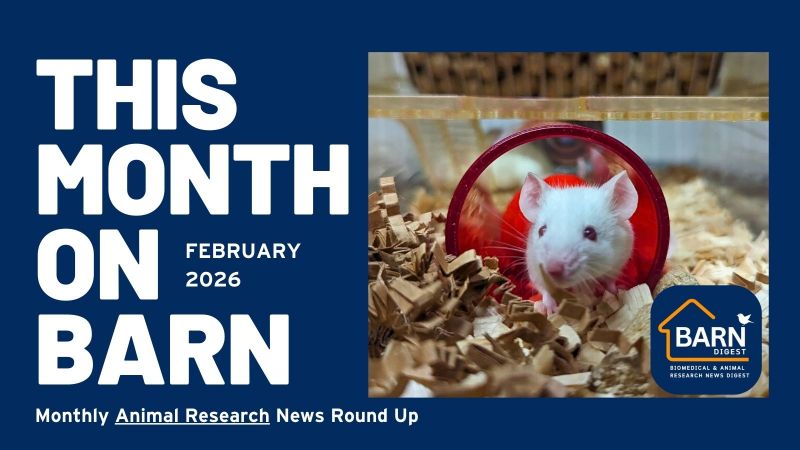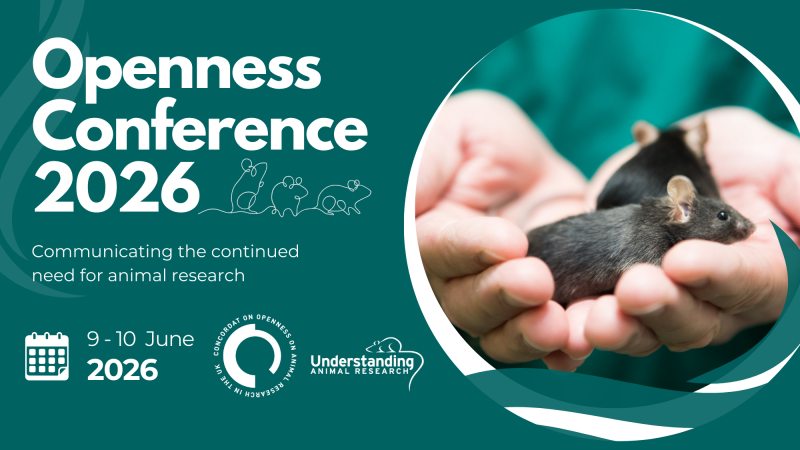

This is the fifth article in our 2019 series reviewing achievements during the first ten years of UAR. Chris Magee, Head of Media and Policy, looks back at our policy work.
UAR policy work: preventing bad law
Policy has been at the heart of UAR’s mission ever since it picked up the baton from the Research Defence Society ten years ago. We represent the interests and views of the bioscience sector on animal research at every level, actively promoting better policy outcomes and defending against misunderstanding and misinformation.
In recent years we have, with our partners, provided expert testimony to government and parliament and helped co-ordinate responses to consultations that, we think, have made a positive, practical contribution to the policy climate in the UK. But just as important is the huge amount of work that goes on further behind the scenes.
Engaging with parliamentary candidates on the campaign trail, long before polling day, and then building on those relationships when the candidate becomes an MP, or contacting party working groups when they are drafting their manifestos and helping them to avoid poorly-considered commitments and other pitfalls, helps us prevent bad policy from arising in the first place will always be more effective than attempting to tackle it once it is in motion.
Consultations
UAR responds to all relevant government and party political policy consultations, alerting our members and other relevant stakeholders when there is a need for them to put their perspective or point of view.
Party Political Conferences
Since 2012, UAR has regularly exhibited at party conferences, particularly in years when a general election is expected. The key to making the most of conference is planning. Making sure we have the staff needed to attend fringe events and receptions, with a brief to contribute to the discussion, is as important as having an interesting stand. Our stands, where we show off latest developments such as the 3D lab tours on virtual reality headsets, do brisk business with great opportunities for engaging with politicians and other opinion-formers.
Attending party conferences has proved to be very important, both to forging lasting relationships with key politicians and as a counterbalance to the propaganda of anti-research groups who regularly attend.
Coalitions and collaborations
Much of our policy work is, of course, collaborative. As the only UK organisation which deals solely with the issue of animals in science, UAR can alert those likely to be affected by policy initiatives so that we can act in concert to make sure that they serve the interests of the bioscience sector.
UAR plays an active role in the UK Biosciences Sector Coalition., Originally set up by UAR as a means of lobbying the EU and UK government on Directive 2010/63, the Coalition has since evolved into an ongoing vehicle for in-depth quarterly engagement between the biosciences and the Home Office. It is now hosted by the Royal Society of Biology.
UAR also works to convene ad-hoc collaborations, for instance to engage with a political party or host an event such as the the 2012 parliamentary reception.
Parliamentary engagement
Parliamentary engagement for UAR means focused interactions with key parliamentarians. If you are an MP who has ever signed a parliamentary motion about research animals, asked a question in the House, made a political pledge or delivered a speech that touches on animal research, then you will have received a letter or more from UAR. Most of these, even if our voice has been critical, will be acknowledged by the MP in question. Every prospective parliamentary candidate in the run-up to the 2015 election – all 3,971 of them – was personally contacted by UAR, pointing out the problems with signing up to the BUAV’s pledge to curtail animal research.
UAR has appeared as an expert witness in front of all-party parliamentary groups and written briefings for both select and standing committees, since it is able to supply specialist knowledge which is not curated by other organisations.
Government relations
A reputation for giving unbiased, helpful information and advice has helped UAR maintain good relationships with government departments including the Home Office, the Office for Life Sciences and BEIS.
Challenging bad policy
Bad policy can spring from anywhere, but is most likely to emanate from campaign groups, amplified by politicians. In a typical exercise from 2015, both the Leader of the Green Party and its only MP signed a pledge banning medical research thinking it was about testing household products. UAR encouraged the media to question them about their position and under pressure of scrutiny they admitted their mistake.
Left unchecked, the misconceptions peddled by anti-research groups often form the bedrock of misguided manifesto or policy ‘fixes’. UAR’s approach is to let no misconception go unchallenged.
International
While our focus is very much on the UK and representing our UK members, UAR nevertheless keeps a close eye on international developments and understands that events overseas can have an impact on the UK policy climate. In 2014 we set up our sister organisation, the European Animal Research Association (EARA), and we have collaborated with partners across the world.
The anti-vivisection movement originated in the UK over the course of more than 150 years, UAR and its antecedent organisations have learned a great deal about how to take an effective stand against the tactics of the anti-animal research activists and for science. This is valuable expertise that is regularly sought out by science communicators as far away as the US, Canada, Australia, New Zealand, China and Africa.
Policy in post-Brexit Britain
The effect of Brexit on the political landscape in the UK has been much more dramatic than anyone predicted. It means that some old certainties need to be abandoned and new relationships and strategies constructed.
UAR is now working to maintain its relationships with the main parties in a context of ever-changing personnel and ever more extreme, populist policy ideas. The context of Brexit further means that policy, good or bad, will be far easier to implement unilaterally without the brake of bureaucracy and need for regulatory alignment that the EU provided.
This creates a continuing need for a re-doubled policy function from UAR, ready to respond to rapid change. The next ten years look to be very interesting indeed.
Last edited: 22 January 2024 15:52



